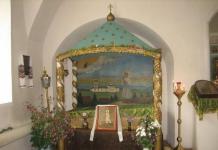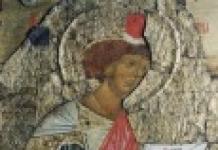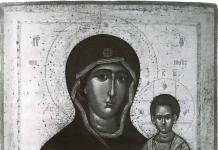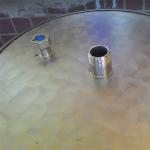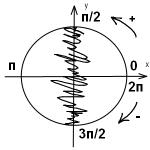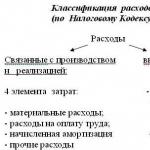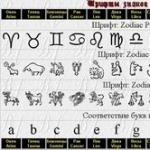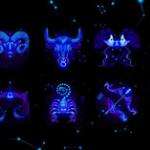In the Orthodox tradition, name days are the day of remembrance of a saint whose name was given to the person being baptized during the holy church sacrament of entry into the Church. In this case, the name day (otherwise the name day) is chosen as the first date of celebration of the saint, starting from the moment of baptism (or birth if the date of baptism is unknown for some reason).
The Orthodox calendar lists four saints with the name Artemy. Therefore, the name days of all Artems fall on the following dates: November 2, July 6, April 6 and June 20.
On November 2, the Church honors the memory of the great pan-Christian saint - the Great Martyr Artemy, who was a military leader in Antioch. The saint lived during the reign of several emperors: under Constantine, Constantius and Julian. The last of the rulers, despite the establishment of Christianity as the dominant religion in the Roman Empire, rejected Christ and began persecuting Christians.
Despite the service feats that Artemy noted during various military operations, Julian accused the military leader of improper worship of the gods and forced him to renounce Christ. For his refusal, Saint Artemy suffered various torments and eventually died from the truncation of his head in 363. Memory of the Holy Great Martyr Artemy on November 2.
On the same day the memory of the holy righteous Artemy Verkolsky is celebrated. This great saint of the Lord has one more day of celebration - July 6th. Artemy was born in 1532 in the village of Verkole (Dvina province). From an early age, pious parents taught the child to live a holy, pious life. As a baby, Artemy loved to pray and fasted. However, the days of life in the land of the righteous were short-lived. At the age of 13, the boy died on the field during a thunderstorm from exhaustion. The people saw this as a sign of God’s punishment over the boy. Therefore, the saint’s body was not even buried, leaving it in the forest. After 28 years, the body of the righteous man was found incorrupt, and the relics of the ascetic appeared miraculous. Nowadays the holy relics of the righteous Artemy are in the Verkolsky monastery, founded on the site where the body of the youth was found.
Among the saints of Artemiev was St. April 6 is the day of remembrance of St. Artemy of Thessaloniki, also called Artemon. This saint lived in apostolic times. From his life it is known that the Apostle Paul himself, during one of his travels, having seen the virtuous life of this Christian, decided to ordain Artemy as bishop of the city of Thessaloniki. For many years the bishop taught and instructed his flock in Christian piety. The saint died at a very old age.
There is another saint named Artemy, whose memory is celebrated on June 20th (on the general celebration of the Vladimir saints). This is the holy righteous Artemy Shuisky of Vladimir, who became famous for his pious life in the 17th century.
About the holy martyr Artemia, ancient legends say that he was from a noble Roman family, had the rank of senator, and under Emperor Constantius was in charge of all the royal property.
Artemy began his service under Constantine the Great, in the troops of this pious emperor. When he, together with Constantine, saw the miraculous sign of the holy cross in the sky, he was confirmed in the Christian faith and became a faithful servant of Emperor Constantine and his house 1.
After the death of Constantine, he stayed with his son, Constantius 2, all the time, as his best friend, and the king gave him the most honorable assignments. So, when Constantius learned from one bishop that the bodies of Christ’s apostles Andrew and Luke were buried in Achaia 3, he instructed Artemy to transfer these precious treasures to Constantinople. Artemy, fulfilling the royal command, with great honors transferred the relics of the holy apostles to the reigning city, and for this he received from the king an promotion, which he was fully worthy of: it was the king who made him dux and Augustal of 4 Egypt, and Artemy lived there, pleasing God. Spreading the honor and glory of the name of Jesus Christ, he overthrew and crushed many idols in Egypt.
When King Constantius, the son of Constantine the Great, died, the power over the entire Roman Empire was assumed by the wicked apostate Julian 5, who had previously secretly, but now openly rejected our Lord Jesus Christ and openly began to worship idols. He sent a decree to all the countries of his kingdom, eastern and western, that those temples that had been taken from the pagans by Christians during the reign of Constantine the Great should now be given back to the pagans; at the same time, he ordered that idols be placed in these temples again and sacrifices made to the gods.
Thus, this wicked king restored everywhere the polytheism that had fallen under the holy king Constantine, and subjected Christians to severe oppression, torturing and killing them, plundering their property and spewing blasphemy against the holy name of Jesus Christ.
To humiliate Christianity, the wicked Julian, taking from the reliquary the bones of the holy prophet Elisha and the relics of St. John the Baptist - except for his venerable head and right hand, which lay in Sebaste - and mixing them with the bones of animals and wicked people, burned them, and scattered the ashes throughout air; Christians collected those ashes and bones remaining from the burning and kept them in a place of honor.
Then he learned that in the city of Paneada 6 there is a statue of Christ the Savior, made by a bleeding woman who was healed by touching the hem of Christ’s robe (Matthew 9:20). The king overthrew this statue and ordered it to be dragged around the square until it was all broken; Only the head of this statue was stolen and preserved by one Christian. In the place where this statue stood, the king ordered to erect his own statue, which, however, was broken by a lightning strike.
Having gathered a large army, the wicked Julian decided to go against the Persians, and during this campaign, arriving in Antioch, here, according to his custom, he initiated a persecution of the Church of Christ, killing the believers.
At that time, two Antioch presbyters, Eugene and Macarius, were brought to him - learned men. Julian argued with them for a long time about the gods, citing various words of pagan Greek writers to prove his wicked thoughts, but he could not force the god-speaking lips of the wise elders to silence; on the contrary, he himself was struck by them, put to shame and convicted of wickedness. Unable to bear his shame, Julian ordered to beat the saints mercilessly, having previously exposed them, and Eugene was given five hundred blows, and Macarius - without number.
When these saints were subjected to severe torture, the great Artemy happened to be at the place of execution. Hearing that Julian had reigned and that he was going on a campaign against the Persians - in view of which a decree was sent to him to arrive with all his troops in Antioch - Artemy came here with his troops, paid Julian the respect befitting a king, offering him with these gifts, and stood near the king at the time when the holy confessors, Eugene and Macarius, were subjected to torture. Hearing how the wicked Julian blasphemed the Lord Jesus Christ with his foul lips, Artemy was filled with jealousy and, approaching the king, said:
- Why do you, sir, so inhumanly torture innocent and dedicated men to God and force them to deviate from the Orthodox faith? Know that you too are a weak person; even if God made you king, you can still be tempted by the devil; I think that the first culprit of evil is the crafty devil. Just as he once asked God for permission to tempt Job 7 and received it, so he raised you up against us and brought you against us, so that with your hands you could destroy Christ’s wheat and sow your tares. But his efforts are in vain and his strength is insignificant; for since the Lord came and the cross was erected on which Christ was lifted up, demonic pride has fallen and demonic power has been crushed. So, do not be deceived, O Tsar, and do not persecute, to please the demons, the Christian people preserved by God. Know that the strength and power of Christ are invincible and irresistible.
Hearing this, Julian was inflamed with anger and shouted in a loud voice:
– Who and where is this wicked man from, who so boldly addresses us and dares to insult us to our faces?
Those present to the king answered:
- Tsar! This is Dux and Augustalius of Alexandria.
- How? - said the king, - this is the vile Artemy, who participated in the killing of my brother Gall 8?
“Yes, sovereign king, this is him,” answered those present.
The king said:
“I must thank the immortal gods, and most of all Daphnian Apollo 9, for delivering this enemy, who himself came here, into my hands. So, let this worthless one be deprived of his dignity; let them remove the belt from him 10 and punish him now, and tomorrow, if the gods please, I will pronounce judgment on him for the murder of my brother. I will avenge innocent blood on him and destroy him not with one execution, but with many executions, for he shed the blood not of an ordinary person, but of a king.
When the king said this, his squires immediately took Artemy and, having removed from him the military belt and other signs of dignity, they stood him naked. And the saint was given into the hands of the executioners, who, having tied his hands and feet, stretched him on four sides 11 and beat him on the back and belly with ox sinews for so long that from fatigue four pairs of executioners replaced him. But the saint showed truly superhuman patience, and seemed to everyone to be completely insensitive: he did not utter a single sound, did not groan, did not make a single movement and did not show any sign of suffering, as people suffering torment usually show. The earth was watered with his blood, but he remained unshakable, so that everyone was surprised at him, even the wicked Julian himself. Then the king ordered to stop beating him, and the saint was taken to prison with the holy martyrs Eugene and Macarius. The passion-bearers sang at this time: “You have tested us, O God, you have refined us, as silver is refined. You brought us into a net, you put shackles on our loins, you put a man on our head. We entered into fire and into water, and You brought us out to freedom" (Ps. 65:10-12) 12.
Having finished singing, Artemy said to himself:
- Artemy, here are the wounds of Christ marked on your body - all that remains for you is to give your very soul for Christ with the blood remaining in you; and he remembered the prophetic word: " I have given My backbone to the smiters, and My cheeks to the smiters."(Is. 50:6) 13. But have I, the unworthy, suffered more than my Master? He was covered with wounds all over his body: from his feet to his head there was no healthy place in Him, His head was pierced with thorns, my hands and feet were nailed to the cross for my sins, while He Himself did not know sin and did not even say a single unrighteous word. Oh, how great, in comparison with mine, are the sufferings of my Master and how far away am I, a pitiful man , from His patience and kindness! I rejoice and am glad because I am adorned by the sufferings of my Master: this eases my torment. I thank You, Master, for crowning me with Your sufferings! I pray to You, bring me to the end along the path of confession; do not let I must prove unworthy of this deed that I had intended; for I have placed my trust in Your bounty, O most kind Lord, Lover of mankind!
Thus, having prayed within himself, the saint reached the prison and remained there for the whole night together with Saints Eugene and Macarius, praising God.
When morning came, Julian the Apostate again ordered the martyrs to appear at the trial, and here, without interrogation, he separated them: he kept Artemia with him, but sent Eugene and Macarius into captivity in Oasim of Arabia 14. That country is extremely unhealthy: disastrous winds blow there and none of those who come there can survive for more than a year, for they will certainly fall into a severe illness that ends in death. So, Saints Eugene and Macarius, having been sent there, after some time reached a blessed death 15, and Saint Artemy endured much suffering. But first, Julian, like a wolf putting on sheep’s clothing, meekly, as if condoling Artemy and pitying him, began to say this:
“With your reckless audacity, you forced me, Artemy, to dishonor your old age and damage your health, which I regret.” Now I ask you, come and make a sacrifice to the gods, first of all to the Daphnian god, Apollo, who is especially revered by me. If you do this, then I will forgive you the crime against my brother and reward you with an even more glorious and honorable rank: I will make you the high priest of the 16 great gods and the chief over the priests of the entire universe; I will call you my father, and you will be second in command to me in my kingdom. You, Artemy, know yourself that my brother, Gall, innocently, out of envy, was killed by Constantius. Our family had more rights to the throne than the family of Constantine, for my father, Constantius, was born to my grandfather, Constantius, from the daughter of Maximian, while Constantine was born from Helen, a woman of simple rank 17. Moreover, my grandfather was not yet Caesar when his son was born to Helen, and my father was born to him when he had already ascended the throne. But Constantine boldly stole royal power. His son, Constantius, killed my father and his brothers, and recently killed my brother, Gallus. He wanted to kill me too, but the gods saved me from his hands. In hopes of them, I renounced Christianity and turned to the Hellenic religion; I know well that the Hellenic and Roman faith is the most ancient faith, but the Christian faith appeared recently, and Constantine accepted it, rejecting the ancient and good Roman rules of life, only out of his ignorance and unreason. And the gods hated him as wicked and unworthy of their trust. The gods hated and rejected him from themselves, and his wicked offspring were destroyed from among the living 18. Am I not telling the truth, Artemy? You are an old and sensible man - judge, am I telling the truth? So, admit the truth and be ours, for I want you to be my friend and assistant in managing the kingdom.
Hearing this and hesitating a little, Saint Artemy began to speak like this:
“First of all, regarding your brother, I will tell you, king, that I am innocent of his death, and in general I have never harmed him by deed or word; No matter how much you investigate, you will not be able to prove in any way that I was guilty of his death. I knew that he was a true Christian, pious and obedient to the law of Christ. May heaven and earth and the whole face of the holy angels and my Lord Jesus Christ, Whom I serve, know that I am innocent of the murder of your brother and did not contribute in any way to his murderers. I was not with King Constantius at the time when there was a discussion about your brother: all the time until this year I remained in Egypt. And to your proposal that I renounce Christ, my Savior, I will answer you with the words of the three youths who were with Nebuchadnezzar (Dan. 3:18): let it be known to you, O king, that I do not serve your gods or a golden image I will never bow to you, dear Apollo. You humiliated blessed Constantine and his family, calling him an enemy of the gods and a madman. But he was converted to Christ from your gods, through a special calling from above. Listen to me about this, as a witness to this event. When we went to war against the fierce tormentor and bloodthirsty Maxentius 19, around noon a cross appeared in the sky, shining brighter than the sun, and on that cross the stars depicted Latin words that promised victory to Constantine. We all saw that cross that appeared in the sky and read what was written on it. And now there are still many old warriors in the army who remember well what they clearly saw with their own eyes. Find out if you want and you will see that I am telling the truth. But why am I talking about this? Christ was foretold by the prophets long before His coming, as you yourself know well. There is a lot of evidence that He really came to earth, and even your very gods often prophesied about the coming of Christ - the Sibylline books and Virgil spoke about the same thing.
And the saint further spoke about how demons often living in idols, being forced by the power of God, against their will, confessed Christ as the true God. Julian, unable to bear Artemy’s truthful speeches, ordered that the martyr be stripped and his sides pierced with red-hot awls, and sharp tridents pierced into his back. Artemy, as before, as if not feeling any pain, did not scream or let out any groan, being wonderfully patient in suffering. After these tortures, Julian again sent him to prison, ordering him to starve the saint with hunger and thirst, and he himself went to a place called Daphne to make sacrifices to his god Apollo and asked him about the outcome of his war against the Persians 21 . He stayed there for quite a long time, every day sacrificing a large number of animals to the nasty Apollo, but still did not receive the desired answer. For the demon, which was in the idol of Apollo and gave answers to people, fell silent from the time when the relics of Saint Babyla (bishop and martyr of Antioch) were transferred to that place, along with the remains of three infants who suffered with Babyla 22. So Apollo did not answer Julian. When the king learned, after a long investigation, that Apollo was speechless because the relics of Babyla were placed not far from him, he immediately ordered the Christians to take the relics from there; but as soon as the holy relics were taken from their place, fire fell from heaven on the temple of Apollo and burned it along with the idol that was in it.
Artemy, while in prison, was visited by the Lord Himself and His holy angels. When Artemy was praying, Christ appeared to him and said:
- Take courage Artemy! I am with you and will deliver you from all the pain that your tormentors inflicted on you, and I am already preparing for you a crown of glory. For just as you confessed Me before people on earth, so I will confess you before My Father in Heaven. So be of good courage and rejoice: you will be with Me in My Kingdom.
Hearing this from the Lord, the martyr immediately began to glorify Him; not a single wound or ulcer remained on his holy body, his soul was filled with Divine consolation and he sang and blessed God. Meanwhile, since he was thrown into prison, he did not eat or drink anything, and this continued until his death. Artemy was nourished from above, by the grace of the Holy Spirit.
Returning in shame from his sacrifices, Julian blamed the burning of the Temple of Apollo on the Christians, saying that it was they who lit it at night, and, having taken away the holy churches from the Christians, turned them into idolatrous temples and began to inflict great oppression on the Christians. Having then ordered Artemy to be brought to him from prison, he told him:
“You, of course, heard what happened in Daphne - how wicked Christians set fire to the temple of the great god Apollo and destroyed his beautiful image. But let the wicked not rejoice in this, let them not laugh at us, for I will repay for this seventy times seven, as you say 23 .
Saint Artemy answered:
“I heard that, by the permission of an angry God, fire came down from heaven and destroyed your god and burned his temple. But if your Apollo was a god, then how did he not rid himself of the fire?
The king said:
“And you, unfortunate one, laugh and rejoice at the burning of Apollo?”
“I laugh at your madness,” answered Artemy, “that you serve a god who could not save himself from the fire.” How can he deliver you from eternal fire? I am consoled by his fall and rejoice in everything that my Christ miraculously performs. And if you boast to repay seventy times seven to innocent Christians who have not done you any harm, then you will receive for this when you are cast into unquenchable fire and eternal torment, which will soon come for you. For your destruction is already close and soon your memory will perish with a noise 24.
The torturer, angry, ordered the stonemasons to cut one large stone and then push it from above onto Artemy, who was tied up and placed on a stone slab under this stone. When this was done, the entire body of the martyr was covered by a stone that fell on him and crushed him so much that he broke all his bones; his insides fell out, the joints of his body were broken and his eyeballs came out of their places. And what a great miracle! Being flattened between the stones, the saint remained alive and called on God, his Helper, and spoke in the words of David:
– "He took me to a rock that was inaccessible to me, for You are my refuge, You are a strong defense from the enemy."(Ps.60:3-4) 25." He set my feet on a rock and established my steps" (Ps. 39:3) 26. Accept now, O Only Begotten, my spirit, for You know my difficult situation, and do not leave me in the hands of the enemy.
Thus, being crushed by a stone, the saint spent the whole day. Then Julian ordered the stone to be removed, considering the saint already dead, but the saint, to everyone’s surprise, turned out to be alive and stood up and walked. And everyone was scared to look at him: before them was a naked man, crushed like a board, with crushed bones, with his entrails falling out; his face was crushed, his eyes were out of their sockets, but life still clung to him, his legs could move and his tongue was still able to speak clearly. The tormentor himself, seeing such a miracle, was horrified and said to his entourage:
– Is this a person or a ghost? Did this wizard avert our eyes? For before us is a terrible sight that goes beyond the limits of nature. Who expected him to still be alive? And now, when his insides have fallen out and all his joints are broken and weakened, he still moves, walks and talks. But, apparently, our gods kept him alive to admonish others, so that the one who did not want to recognize their power would remain a terrible monster for those who looked at him.
And Julian said to the martyr:
“Now you, unfortunate one, have already lost your eyes and all the members of your body are completely spoiled - how can you still have hope in the One on whom you have hitherto hoped in vain? But ask for mercy from the merciful gods, so that they have mercy on you and so that they do not give you over to hellish torment.
The martyr of Christ, hearing about the torment, grinned and said to the king:
“Will your gods hand me over to torture?” They themselves cannot escape the torment prepared for them, and with them you, being thrown into eternal fire, will suffer forever, for you denied the Son of God and trampled underfoot His holy blood, shed for us, and mocked the grace of the Holy Spirit, obeying destructive demons. For the minor pain you caused me, I hope from my Lord, for Whom I suffer, to have eternal peace in His heavenly chamber.
Julian, having heard this, pronounced the following sentence to the martyr:
- Artemy, who blasphemed the gods, trampled on Roman and our laws, recognized himself not as a Roman, but as a Christian and called himself, instead of dux and Augustal, a Galilean - we put him to death and command that his vile head be cut off with a sword.
After such a sentence, the saint was taken to the place of execution and walked there with unspeakable joy, wishing " resolve and be with Christ" 27. Arriving at the place where the execution was to take place on him, he asked himself time for prayer and, turning to the east, knelt down three times and prayed for a long time. After this, he heard a voice from heaven that said:
- Come in with the saints to receive the reward prepared for you.
And immediately the blessed one bowed his head and was beheaded by one soldier, on the twentieth day of the month of October; the day on which he committed martyrdom was Friday. One woman named Arista, a deaconess of the Antiochian Church, begged his honest and holy body from the torturer and, anointing it with precious aromas, put it in an ark and sent it to Constantinople, where it was buried with honors. From his relics many wondrous miracles were performed and various healings were given to the sick, which Saint Artemy still gives to all who come to him with faith.
After the death of Artemy, the prophecy that he expressed to Julian directly in the eyes regarding his death soon came true: “you will soon perish and it will not be long before the memory of you perishes with noise.” For Julian, having killed Saint Artemius, set off with his troops from Antioch and went against the Persians. When he reached the city of Ctesiphon 28, he met a Persian, an old, respected and very sensible man. He promised Julian to betray the Persian kingdom and volunteered to be a guide to Persia for the lawless king and his entire army. But this did not serve the evil bloodsucker’s benefit, for that Persian deceived him and, pretending that he was leading him along the straight and true road, led the villain into the Karmanitsky desert 29, into impassable places, where abysses were constantly encountered, where there was no water at all and no food. , so that all the warriors were exhausted from hunger and thirst, and the horses and camels all fell. After this, the guide admitted that he had deliberately led the Romans into such empty and terrible places in order to weaken their strength. “I did this for this reason,” he said, “so as not to see my fatherland captured by enemies, and it is better for me here alone than for my entire fatherland to perish at your hands.” And immediately after this confession the Persian was cut into pieces by the soldiers. Wandering through the desert, the Greeks and Romans, against their will, encountered the Persian army and, during the battle that took place here, many Julian warriors fell. Divine retribution here befell Julian himself, for he was pierced in the side by an invisible hand from above and an invisible weapon that passed down his stomach. He groaned heavily and, grabbing a handful of blood with his hand, threw it into the air and exclaimed:
– You have won, Christ! be satisfied, Galilean!
And then he, dying in agony, cast out his villainous and nasty soul and died noisily, according to the prophecy of Saint Artemy 30. The Roman army, after the death of Julian, installed Jovian as king, who was a Christian, and who, having made peace with the Persians, returned back. So Julian suffers in hell with Judas 31, while Artemy rejoices in heaven with the saints 32, standing before the One God in the Trinity, the Father and the Son and the Holy Spirit, to Him be glory forever. Amen.
Kontakion, voice 2:
The pious and crowned martyr, who overcame the enemies of victory with dignity, let us praise Artemy with songs, the greatest among martyrs, and the rich giver of miracles: he prays to the Lord for all of us.
________________________________________________________________________
1 Constantine was not yet a Christian when he had to oppose his strong rival Maxentius. He did not know whom to pray to for help, and so, when the sun sank to the west, Constantine saw a shining cross in the sky and under it the inscription: “with this conquer”; His troops also saw this sign. In a dream at night, Christ Himself appeared to Constantine and ordered him to arrange a banner in the form of a cross and depict the cross on the shields and helmets of his soldiers. Constantine did this - and soon completely defeated the troops of Maxentius. After this, he openly declared his sympathy for Christianity.
2 Reigned from 337 to 361.
3 Province in Greece.
4 Dux is a military leader. Augustalius is a title equal to the modern title: Highness.
5 Julian, nephew of Constantine the Great, during the lifetime of Constantius, was co-ruler of this emperor, governing the western provinces of the Roman Empire.
6 A city in northern Palestine (otherwise known as Caesarea Philippi).
7 Job is the great righteous man of the Old Testament; guardian of true revelation and worship of God in the human race, during the strengthening of pagan superstition after the dispersion of nations; known for his piety and integrity of life; was tested by God with all the misfortunes, among which, however, he remained unshakable in faith and virtue. The story of Job is detailed in a book named after him.
8 Gall, Julian's brother, was made heir to the throne by Emperor Constantius - who had no children, but then aroused Constantius' anger against himself by clearly beginning to strive to overthrow Constantius from the throne. The latter sent his trusted people to deprive Gall of power over the eastern provinces, and these sent, out of a desire to please their sovereign, killed Gall.
9 Daphne is a suburb of Antioch. It was an extremely beautiful area, where many different trees grew, where clear streams flowed everywhere, and where there was an image of the sun god, Apollo, whom Julian revered more than all other gods.
10 The belt is a special distinction of a military leader.
11 The hands and feet of those being tortured were tied to four stakes driven into the ground so that those being punished could not interfere with the punishment.
12 In this place we are talking about the Jews, for whom being in captivity in Babylon was the same as having silver in a fiery furnace or being a bird in a net. Sorrows on the ridge, beatings on the back. Head people are tormentors who have our lives in their power.
13 The Prophet actually speaks about the future sufferings of the Savior, but his words can also be applied to believers who take upon themselves the yoke of Christ’s sufferings.
14 Oasim is one of the oases in Arabia. Oases in the Arabian Desert are places supplied with vegetation and water.
16 How important the position of the high priest was is evident from the fact that the title “high priest” was one of the titles of the Roman emperor. This priest had the right to condemn lower priests who disobeyed him to death. He lived in the ancient royal palace of Numa.
17 Emperor of the Western Empire Maximian Herculus reigned from 284 to 305 AD. – Constantius, surnamed Chlorus, his successor, was first married to Helen (St. Helen of the Apostles), then, at the request of Emperor Diocletian, he divorced her and married Theodora, daughter of Maximian Herculus. Constantine the Great, after all, as his eldest son, was made heir to the throne.
18 Constantine the Great had three sons: Constantine, Constantius and Constance. The eldest took for himself upper Gaul, Britain, Germany and Spain, the younger - lower Gaul, Italy, Illyria and Africa, and the middle - the countries of the east and Egypt. Soon Constantine was killed in the war, and Constance was killed by his close associate Magnentius during a hunt.
19 This military campaign against the Roman Emperor Maxentius was undertaken by Constantine in 312.
20 Sibyls were the name given to soothsayers by the Romans in ancient times. Their predictions were combined into three books, which were kept in the temple of Jupiter Capitoline, and then in the temple of Apollo on the Palatine Hill. Christian writers also paid attention to their predictions, finding in them some hints about the coming of the Kingdom of Christ. – Virgil Maro is a famous Roman poet (born in 70 BC). – Artemy obviously means here his poems – “Bucolics”.
21 The pagans thought that the gods, out of their concern for people, wanted to reveal their will to them. Therefore, they believed in dreams that the gods supposedly sent them. In addition, the pagans had special oracles - places and temples where priests or persons who were capable of entering a special state of frenzy spoke on behalf of the gods and then uttered various words, from which the priests composed more or less coherent sayings. The god Apollo was primarily considered the leader of these oracles.
23 Julian distorts the meaning of the text from Matthew 18:22. Here we are not talking about retribution or punishment, but about forgiving a brother who has sinned seventy times seven times.
24 That is your death will be extraordinary and will cause great stir among people.
25 That is “You, Lord, set me on a rock as a place of safety; You became for me a strong pillar or tower where I could find salvation.
26 Correct your feet - put them on a real, straight road.
27 Phil.1:23. To resolve is to depart from earthly life.
28 Persian city on the left bank of the river. Tiger; During Roman rule it was a strong fortress, which, however, fell into the power of the Romans several times.
29 Karmania - the current Persian region of Kerman. Its northern part (steppe Karmania) was almost entirely barren desert, and the southern part was very sandy, although several rivers flowed in the latter.
30 Julian died in 363 AD.
The icon of Artemy Verkolsky was painted in honor of the holy Orthodox youth, a true believer in the Lord. His found relics and holy image performed many miracles, helping believers in healing their souls and bodies.
The icon of the pious Artemy Verkolsky is extremely popular among believers. The relics of the wonderworker, like His shrine, heal the most terrible and terrible things, and the life of the Orthodox youth does not leave anyone indifferent to this day. It should be noted that Artemy is not one of the holy martyrs of God. The significance and veneration of the prophet by the Orthodox Church is of a special nature and lies in its extraordinary history.
Life story of Artemy Verkolsky
Artemy Verkolsky was born in Russia, in the village of Verkol. His parents were ordinary peasants living in righteousness and piety. The young man was raised according to Christian traditions, distinguished by meekness, obedience and holiness from childhood. He always helped his father with housework and housework. In the summer of 1545, Artemy worked in the field with his father. Suddenly they heard a loud clap of thunder, followed by a bright flash of lightning. At that very moment the young man, who at that time was only 12 years old, fell to the ground dead. Local residents were frightened by such a sudden death of the boy, attributing this event to the wrath of God and His punishment. It is for this reason that Artemy’s lifeless body was not laid to rest according to all Orthodox traditions. They left him in the forest, covering him with tree branches and lightly covering him with earth.

The body of Artemy Verkolsky remained untouched for 32 years and was abandoned in that very place. In 1577, a cleric named Agathonikos noticed a light coming from the forest. When the deacon approached the extraordinary glow, he discovered that the beam pointed to the remains of a deceased youth. After the discovery of the incorruptible relics of the youth Artemy, the villagers placed them near the outer vestibule of the local temple. Soon the relics of the deceased young man acquired special holy power. Miraculous phenomena and healings began to occur to the residents of the settlement. Tales of the miraculous deeds of the relics of Artemy Verkolsky instantly spread throughout the world. Soon, icon painters began to paint icons with the face of St. Artemy. There is a lot of irrefutable evidence confirming the miraculous deeds of the incorruptible relics and the icon of St. Artemy.
Where is the icon and relics of Artemy Verkolsky
At the site where Artemy’s relics were found, a monastery was built where the incorruptible remains of the saint were placed. The Verkolsky Monastery still exists today. Within its walls is the main icon of Artemy Verkolsky, and with it His relics.
Description of the miraculous icon

The icon depicts the image of the righteous Artemy. The saint is depicted from the waist up, his body covered only by a modest casual shirt. In his left hand he holds an unfolded manuscript with an akathist written on it. In the youth’s right hand is a cross, a symbol of Orthodoxy, serving as a reminder of the suffering of Christ, which He took upon himself to save humanity from punishment for sins.
How does a miraculous image help?
The icon of the righteous Artemy contains incredible power. It is famous for its unimaginable wonders. Orthodox believers turn in prayer to the miraculous image for healing from serious, unbearable diseases. The shrine is capable of giving recovery even to the terminally ill. But why the holy image gained such fame was for numerous healings from diseases associated with the eyes. There have been many cases where completely blind people regained their sight.
Days of celebration

The official day when honors are offered to Saint Artemy Verkolsky, adopted by the Russian Orthodox Church, falls on November 2.
Prayer before the icon of Artemy Verkolsky
“Oh, holy miracle worker! You are a resident of God's Heaven, a righteous man and a saint of the Lord! Hear our prayers! Pray before our Father for our sinful deeds! For we repent and ask for forgiveness and remission of our sins! Become our intercessor! Protect from evil and various diseases! Do not let your spirit fall in difficult times and give you strength to move along the righteous path! We will never forget Your holy name! And we will praise You all our lives, O Most Holy Artemy! May God's will be done for everything! In the name of the Father, and the Son, and the Holy Spirit. Amen".
To ensure that troubles and sorrows leave you, start your day right - with prayers addressed to the saints. The holy saints of God are called upon to help and protect the lives of believers. And Artemy Verkolsky is no exception. We wish you strong faith, success, and don't forget to press the buttons and
Holiness and piety do not depend on the age of the believer. Through prayer at the icon of the holy youth Artemy Verkolsky, many people received healing from serious illnesses.
Story
The unusual story of the life and posthumous miracles of the youth Artemy made him one of the most revered Orthodox saints.
Earthly path
In 1532, in the northern village of Verkola, located on the banks of the Pinega River, a boy was born into a simple peasant family, who was named Artemy. Being sincere believers, the parents raised their son in an atmosphere of reverence for traditional Christian values and love for the Lord. From the age of five, he preferred the humble reading of prayers and all possible help in the parental household to carefree children's games.
Holy Righteous Artemy Verkolsky
One day, a twelve-year-old boy was working in the field with his father. Suddenly the sky darkened and a strong thunderstorm began. Artemy began to pray fervently, and at that moment lightning struck him. The villagers decided that this was God’s punishment for any sins, and refused to bury the boy on consecrated ground.
His body was left in the forest, covered with branches and birch bark. Thus ended the earthly journey of Artemy Verkolsky.
Finding the relics
32 years after the death of the boy, the clergyman of the local church saw a glow in the place where the restless body lay. Coming closer, the priest saw that it was untouched by decay. The relics of the youth Artemy were transferred to the church, placed in a coffin covered with birch bark boards, which was placed in the outer vestibule. In 1610, the remains of the righteous young man were transferred to the main building of the temple and placed in a special shrine.
Artemy Verkolsky was canonized in 1619 with the blessing of Metropolitan Macarius of Novgorod. 30 years after the start of official veneration, a monastery was built in Verkola, dedicated to the holy righteous youth, in which his relics were kept until 1918.
Interesting: the inhabitants of the monastery hid the relics of Artemy from the Bolsheviks before the closure of the monastery. After its revival in the 90s. The search for the shrine was carried out for some time, but it ended in vain.
Today, in the Church of St. Nicholas the Wonderworker, an icon of St. Artemy with a particle of his relics is kept.
Miracles and healings
After the miraculous discovery of the relics, many miracles and healings began to occur from them.
- A few years after the installation of the relics in the St. Nicholas Church, a fever epidemic broke out in the area. Through prayer at the remains of the righteous man, many sick people received healing, and the epidemic soon ended.
- The intervention of the righteous Artemy helped restore the sight of the Kholmogory peasant Hilarion. The holy youth appeared to him and, making the sign of the cross, ordered him to go to the Verkola church to venerate his incorruptible relics. The healed man fulfilled the order and told the Verkol people about the miraculous phenomenon.
- Voivode Afanasy Pashkov stopped in Verkola on the way to his destination, but left the village without venerating the holy relics. Soon his son Jeremiah was overcome by a fatal illness. Then the governor vowed to go to the relics of Artemy Verkolsky on a pilgrimage. At the same time, the youth Jeremiah stood up and asked his father when they would set off on the road. Athanasius served the dinner and even erected a small chapel in honor of the Holy Martyr Artemios of Antioch at the place where the holy relics were found.
- Through prayer to the Lord and the righteous Artemy Verkolsky, sailors who were caught in a strong storm on the open sea were saved from death on the way to Arkhangelsk.
Iconography
The first icons of Artemy Verkolsky were painted on birch bark boards that covered the coffin with the discovered relics.
 Icon of Artemy Verkolsky
Icon of Artemy Verkolsky
There are three main versions in Orthodox icon painting:
- On the individual icon there is a half-length image of a young man. He is wearing a white casual shirt. In his left hand he holds an unfolded sheet with the words of the akathist. In his right palm he squeezes the main symbol of Christianity - the cross. Sometimes, along with the cross, the youth holds an olive branch - a symbol of eternal peace.
- Individual icons depicting the righteous youth are interesting due to their varied backgrounds. Some of them contain an image of a temple, symbolizing a monastery. Others depict scenes from the earthly life of the holy youth.
- A special place in the iconography of St. Artemy is occupied by hagiographic icons, the marks of which are dedicated to the miraculous phenomena that occurred after the discovery of his holy relics.
What to pray to the holy righteous Artemy Verkolsky
Numerous testimonies confirm the great power that prayer in front of the icon of the holy youth Artemy has. It helps in the following cases:
- presence of severe physical illness;
- partial or complete loss of vision;
- life-threatening situation associated with natural phenomena;
- making an important decision.
Righteous Artemy Verkolsky
Any of the people can have their own day of an Angel by name, there is also a day of the Angel Artem. Angel Day is the day of the patron saint for any person with the same name.
We must remember that this day has nothing to do with the guardian angel. During baptism, a person also receives a holy patron angel from the Lord God. In a word, Angel Day is the birthday of the soul. This day is celebrated by visiting church and reading prayers.
When is Artem's name day?
Artem’s name day in the Orthodox calendar falls on seven days a year and at different times of the year in autumn, winter, spring and summer:
- Bishop Artem of Lystra – 17.01. and 12.11.;
- Artemy Palestinsky – 26.02.;
- Artema the Saint from Seleucia – 04/06;
- Artem from the city of Kizik – 12.05.;
- Artemy from Verkola – 07/06 and 11/02;

Angel Day, name day, is celebrated, as a rule, once a year on or after a birthday (but not before a birthday!). So, for example, if a boy was born on January 15, then his name day will be on January 17, and if he was born on June 11, then his name day will be on July 6.
What does the name Artemy mean in Orthodoxy?
The name Artemy takes its roots from ancient times. According to one version, Artemy comes from the name of the famous goddess of fertility and hunting from mythology - Artemis. According to another version, from the ancient Greek word “Artemes”, which translated into Russian means healthy, unharmed, not subject to disease.
In Christian history there were saints called Artemias. All of them were distinguished by their true faith in God. The Church remembers and honors them.
Artemy Verkolsky Memorial Day
The youth Artemy is one of the most revered in Rus'. He lived in the sixteenth century in the village of Verkola near Arkhangelsk. From an early age the boy was humble, meek, and led a pious life. At the age of 12, Artemy died when he was struck by lightning during a thunderstorm.

Fellow villagers, deciding that God had punished the boy, did not perform a funeral service or bury him. The deceased was left in the forest, covering his body with brushwood. About thirty years later, a local deacon accidentally discovered the incorruptible relics of Artemy, from which a radiance emanated.
The relics were transferred to a local church, where miraculous healings of people began to occur from them. Soon people began to come from everywhere for healing. It was decided to paint icons of the holy youth.
People's rumors also reached Tsar Alexei Mikhailovich. He gave the order to place the relics in a shrine and found a monastery. The days of memory of Artemy Verkolsky are considered July 6 and November 2.
Artemy Palestinian
Artemy of Antioch (Palestinian) Christian was a remarkable military man, commander during the period when Constantine the Great was on the throne, and then during the reign of his successor Constantius, his own son. Artemy's achievements in the military field were impeccable. For his outstanding successes, Constantine appointed him governor of Egypt.

But the period of the reign of Julian, the apostate emperor, began. Julian waged a merciless war against Christianity and wanted to bring back paganism. He violently persecuted Christians and killed hundreds of them.
One day, when Artemy arrived in Antich, he learned that Julian had tortured two bishops, forcing them to renounce their faith in Christ. Artemy openly expressed his protest against the pagan ruler; he was not afraid of Julian and publicly convicted him of impiety. The emperor became very angry and ordered Artemy to be tortured and then imprisoned.
In prison, when Artemy was praying, Christ “visited” him, surrounded by angels, and said: “Be courageous, and you will be with me in the eternal kingdom!”
The next morning, Julian demanded that Artemy renounce his faith and recognize paganism. But Artemy refused, the emperor ordered the torture to continue. The great martyr endured all the tortures courageously, and prophesied a quick death for Julian. Artemy's head was cut off.
Immediately after the execution, the saint was taken and buried in the Church of John the Baptist in Constantinople (later the temple was named in honor of Saint Artemius).
Saint Artemy of Thessalonica
Blessed Artemy (Artemon) of Thessalonica was born in the city of Seleucia in Pisidia of Asia Minor. He lived at the same time as the holy Apostles and led the life of a virtuous and honest person.

Of all the townspeople, Artemy was the most deeply religious Christian. For this reason, the Holy Apostle Paul, when he entered the city of Seleucia, appointed Artemius as the first bishop in the city.
The saint performed his duties excellently and to please the Lord. All the townspeople loved him and were very grateful. He ruled wisely, stood up for the persecuted and the poor, saved the suffering, took into the care of orphans and widows, and the poor. Blessed Artemy was a real miracle healer for all people of that time. He treated and healed not only bodies, but also souls. He spent his long life pleasing God and piously, and was an example for his people.
